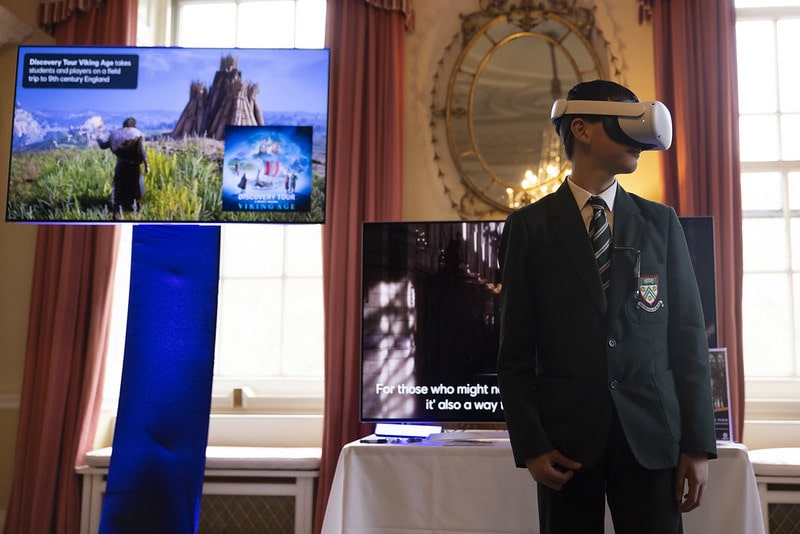In a new thought leadership series, we've been considering the past and future of the UK games industry, discussing some of the most important issues facing our sector today.
This edition is all about British games innovation – our best export and driver of soft power.
The British games industry has a longstanding history of innovation.
It secures great commercial success and offer experiences that resonate with their worldwide audiences like no other. It builds new ways of playing altogether, driven by engaging, recognisable intellectual property.
Now-established genres define the way the world understands the UK.
Written on the home computers of the 1980s, Elite in 1984 defined the space trading genre. Populous in 1989 was the first god game, paving the way for global successes like The Sims. From there, we saw the creation of open world and multiplayer online role-playing games such as Grand Theft Auto, pioneered in Dundee, and Runescape, developed in Cambridge. More recently, Rolando for iPhone showed the world how easily smartphones could be used for games.
Everywhere you look, there are examples of British games success stories, driving economic growth and cementing the UK as a leading hub for culture and creativity.
But these great ideas have come from British games businesses taking great risks.
As we think about the next generation of era-defining games, we need to create the space and environment for game developers to continue to take these risks.
The Department for Culture, Media and Sports’ Creatives Sector Vision is a welcomed step in creating that.
It recognised that the games industry is one of our fastest growing creative industries, contributing over £5bn to our economy and supporting over 75,000 jobs across the supply chain. It also recognised that in order to boost creative industry hotspots across the UK, we must build a skilled, productive creative workforce.
We need to ensure there is a steady stream of highly skilled and creative workers who can continue to develop these worlds and experiences.
We need to deliver flexibility in how games industry companies can draw down on the apprenticeship levy, allowing for it to be used for training or traineeships – perhaps honing or finishing an individual’s skills on particular technologies or attracting people from other sectors or backgrounds would open up more junior level opportunities in our sector in the short and medium term.
In the long term, we need to re-examine how digital creativity and skills are taught in schools through subjects such as computer science, art and design are vital to ensure school leavers and graduates have a grounding in the skills required for a role in our industry.
The video games industry is a sleeping giant for promoting the UK’s reputation as a leading hub for culture and creativity around the world. Harnessing this will not only increase the flow of investment into the UK, but talent too.

